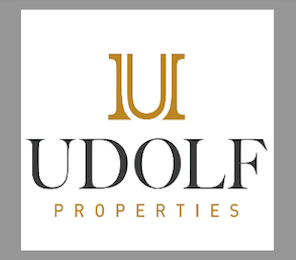WEST HARFORD – What’s happening Jewishly when it comes to energy independence and our planet? Why is Judaism inherently a “green” religion?
Beth El Temple of West Hartford will host a Tu B’Shevat-themed weekend on Saturday, Jan. 15 and Sunday, Jan. 16, to explore the connections between Judaism and the environment. The event is co-sponsored by the Men’s Club and Sisterhood, as well as the T’Green Olam committee, which focuses on energy conservation, environmental awareness, and “greening” the synagogue and the community..
Sybil Sanchez, director of the Coalition on the Environment and Jewish Life (COEJL), is one of two featured speakers at Beth El Temple’s Tu B’Shevat Weekend on Judaism and the environment. Sanchez will give an overview of the textual and conceptual basis for Jewish environmentalism and will discuss COEJL’s ongoing policy work and its Jewish Energy Covenant campaign.
Ana Alfaro, public affairs specialist at CL&P and Yankee Gas, will discuss how to use energy more wisely and reduce energy usage. Each attendee will receive a free compact light bulb and materials to help implement conservation at home.
Since its founding in 1993, COEJL has worked to help Jews make a connection between Judaism and the environment. COEJL has put environmental protection on the agenda of the organized Jewish community and made the case to elected officials and decision-makers that protecting the environment is a moral and religious obligation. Today, COEJL represents 29 national Jewish organizations spanning the full spectrum of Jewish religious and communal life and serves as the voice of the organized Jewish community on environmental issues in Washington, D.C. and around the country. Headquartered in New York, COEJL is a program of the Jewish Council for Public Affairs (JCPA).
COEJL is focused on bringing a Jewish voice to environmental concerns and elevating the imperative of the environment within Jewish life. Through its Energy Covenant, COEJL works to engage Jewish leaders, individuals, and institutions around environmental stewardship.
“Judaism is a green religion,” Sanchez says. “The fundamental notion of God’s creation is that the planet isn’t ours, but that we are its stewards. We’re here for a purpose, to care for ourselves and for our planet, ‘to till and to tend,’ as our role in the Garden of Eden is described in Genesis. We’re not separate from the environment and the environment isn’t separate from us, but rather we are in and of the environment.”
Judaism puts across this point in a simple way, Sanchez says: the Hebrew for “man” is “adam;” the word for earth or planet is “adamah,” which teaches that we are of the earth. One of the ways in which Judaism keeps a consistent environmental focus is through the observance of Shabbat. “The idea is that we take a break from creation and from the feeling that we’re the only ones in charge,” she says. “We look to God and our community, to Jewish tradition and law, to reconnect us to the notion that there’s something bigger out there than ourselves.”
As director of COEJL, Sanchez focuses on Jewish environmental sustainability, presenting a Jewish voice on environmental policy, and providing resources for environmentalism and Jewish life. A long-time advocate for social-justice issues, including the environment, workers’ rights, and universal human rights, Sybil previously served as executive director of the Jewish Labor Committee and as director of United Nations Affairs at B’nai B’rith International. She serves on the board of the Green Zionist Alliance.
For more information on Beth El Temple’s “A Tu B’Shevat Weekend: Judaism and the Environment” to be held on Jan. 15-16 call (860) 582-9027 / hgraime@att.net








 Southern New England Jewish Ledger
Southern New England Jewish Ledger









